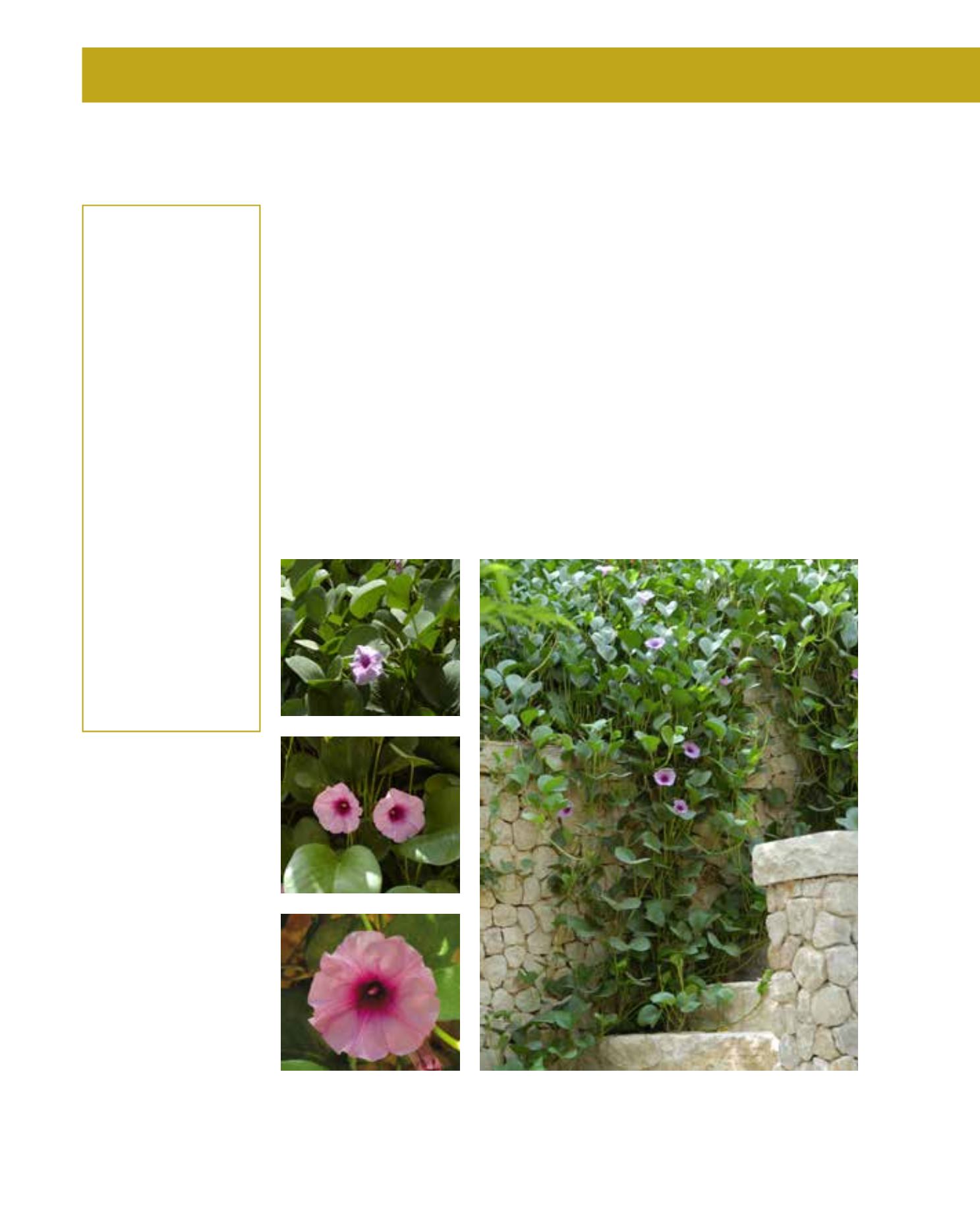

GENERAL
Origin
:
sub-tropical,
tropical
Vigour
:
fast growing
Humidity
:
semi-arid, semi-
humid, very
humid
Propagation :
sowing and
pricking out,
cuttings
Maintenance :
low
CONDITIONS
Urban climate :
resistant
Dessication :
resistant
Stagnant water :
vulnerable
Irrigation
:
medium
Salinity/ppm :
high (4500 ppm)
Hardiness
:
0°C
SHAPE
Type
:
perennial
Height
:
0.1 m-0.2 m
Spread
:
5 m-30 m
Foliage
:
evergreen
FLOWER
Colour
:
lilac, pink, purple
Size
:
5 cm - 10 cm
Period
:
June - September
FRUIT
Type of fruit :
capsule
Fruit size
:
1.7 cm
From the West Indies, the Beach Morning Glory began to spread, and is now found growing on
beaches and dunes in subtropical and tropical climates. It is well established in Arriyadh. It co-
vers the soil sparsely with long stems that root at the nodes to fix itself on the ground. This trait is
valued in controlling erosion. Roots may reach 3 metres deep and one plant can cover an area of
30 metres across while being less than 10 cm high. To resist heat and strong winds the evergreen
leaves are stiff, almost succulent, and they are lobed like the imprint of a goat’s hoof. Its species’
name, pes-caprae, means foot of a goat. Cold winters may cause it to go dormant and shed its
foliage. The funnel-shaped, lilac flowers are very attractive and are borne in late spring until
autumn. They measure about 5 cm in diameter and open in the morning, hence their vernacular
name Morning Glory. Another common name is Railroad Vine, referring to its very fast growth
that occasionally needs to be controlled. Adverse conditions such as high salinity, torrid sun and
prolonged drought are tolerated by established plants. Frost will cause dieback and plants often
have bare patches where damage has been caused. Although the plant can be grown from seed,
it is usually started from cuttings. Beach Morning Glories are ideal plants in low-maintenance
gardens with poor soil. Since they do not cover the soil densely, weeds may penetrate the area, so
that mulching is required on fertile ground.
165
Ipomoea pes-caprae,
Convolvulaceae
Beach Morning Glory
















